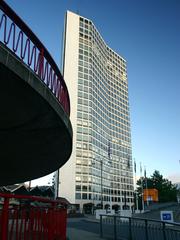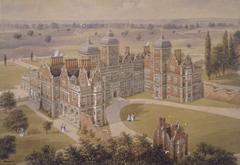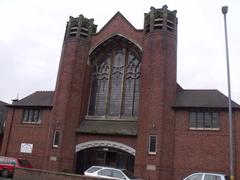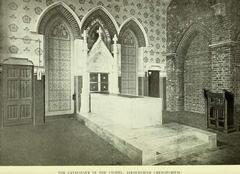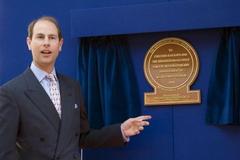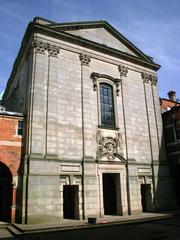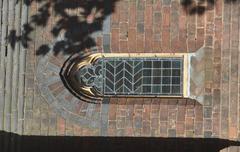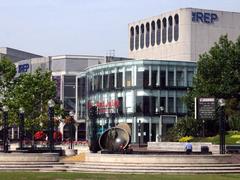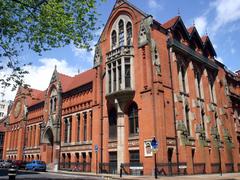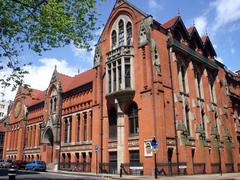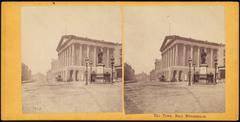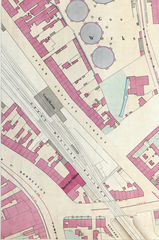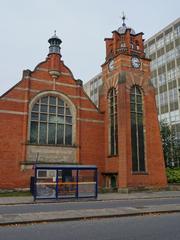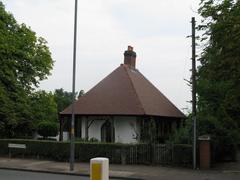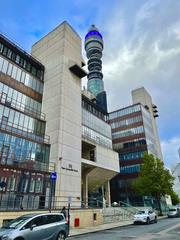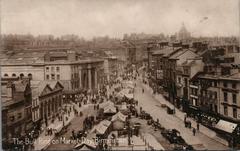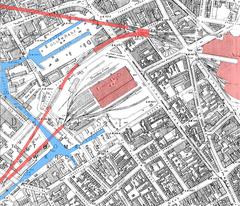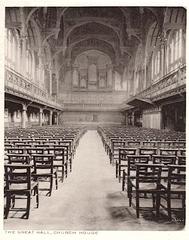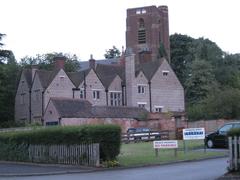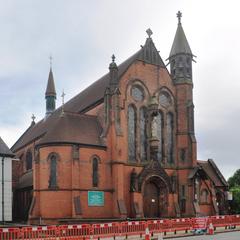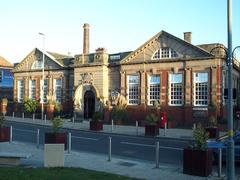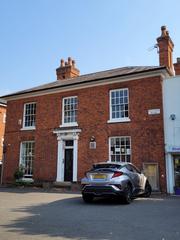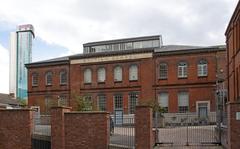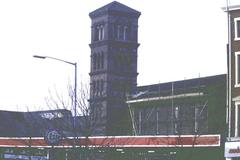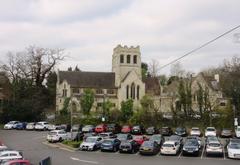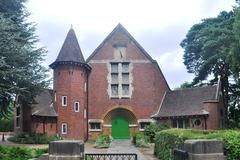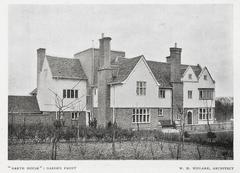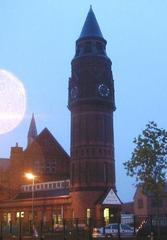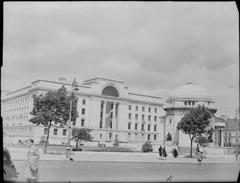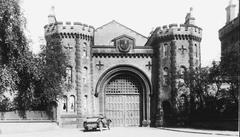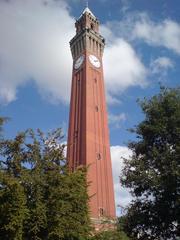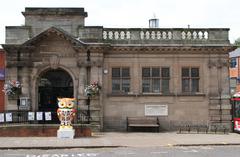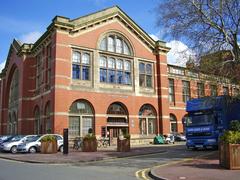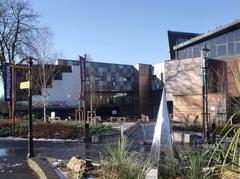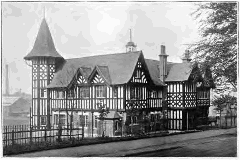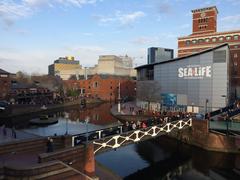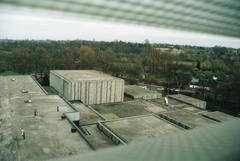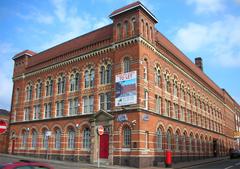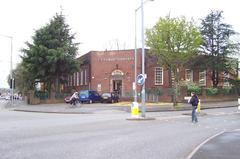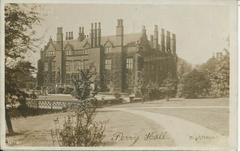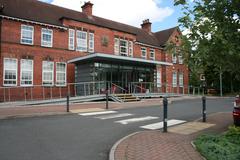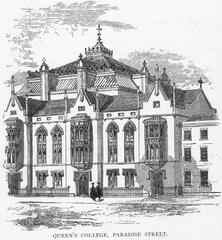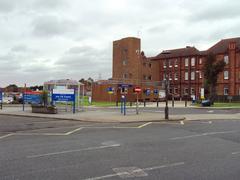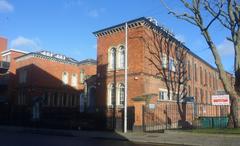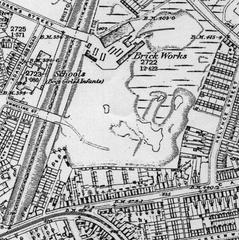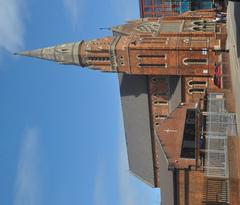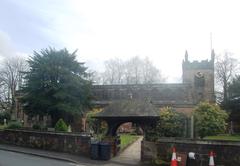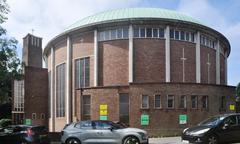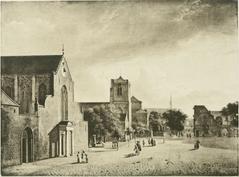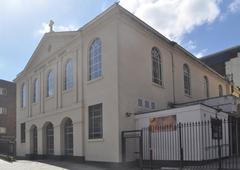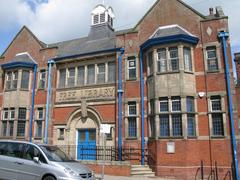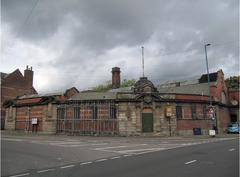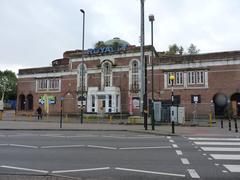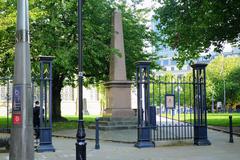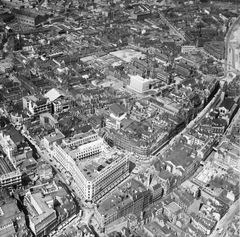City Hospital Birmingham: Visiting Hours, Historical Significance, and Visitor Guide
Date: 15/06/2025
Introduction
City Hospital Birmingham, established in 1889 as the Birmingham Union Infirmary, has stood as a pillar of healthcare and community support in Birmingham, UK, for over 130 years. Its red-brick Victorian architecture, deep historical roots, and evolving purpose have woven it into the fabric of the city’s heritage. In late 2024, the hospital transitioned most clinical services to the new Midland Metropolitan University Hospital, marking a new era as the site became the City Health Campus. Today, it remains a significant destination for those interested in medical history, architecture, and the ongoing evolution of Birmingham’s healthcare landscape (Express & Star; Birmingham Mail).
This guide offers a detailed overview for visitors: from historical background and redevelopment updates to practical travel tips, accessibility, and nearby attractions. Whether you’re exploring Birmingham’s historical sites, attending an outpatient appointment, or interested in the regeneration of this iconic campus, you’ll find essential information below.
Table of Contents
- Historical Overview
- Visiting City Hospital Birmingham: Essential Information
- Transition to City Health Campus: Facilities and Visitor Guidance
- FAQ: Frequently Asked Questions
- Practical Visitor Tips
- Conclusion
- References and External Links
Historical Overview
Origins and Early Development (1897–1948)
Opened in 1897 as an extension of the Birmingham Union Workhouse, City Hospital was designed to address public health needs during the industrial revolution. Influenced by Florence Nightingale’s principles, the hospital featured a long central corridor and radiating wards to maximize natural light and ventilation—a hallmark of Victorian medical architecture (Birmingham Mail). The “Archway of Tears,” a poignant symbol for those entering the workhouse and infirmary, remains a powerful chapter in the site’s story, though it was demolished in 2017 during redevelopment (Birmingham Mail).
The NHS Era and Expansion (1948–1990s)
With the advent of the National Health Service in 1948, City Hospital became a cornerstone of publicly funded healthcare. Expansion brought new wards, operating theatres, and specialist centers, including the Birmingham and Midland Eye Centre and the Sickle Cell and Thalassaemia Centre, reflecting the city’s growing and diverse population (SWBH NHS Trust).
Modernization and Community Impact (1990s–2020s)
Throughout the late 20th and early 21st centuries, City Hospital developed into a major teaching and research institution. Its influence extended beyond healthcare, serving as a training ground for medical professionals and a major employer in northwest Birmingham. The site also played host to community events and featured in TV dramas, demonstrating its cultural resonance (SWBH NHS Trust; Birmingham Mail).
Transition to City Health Campus (2023–2025)
In November 2024, City Hospital’s acute and emergency services relocated to the Midland Metropolitan University Hospital in Smethwick, a move intended to modernize and centralize acute care provision (Dudley News; BBC News). The site was rebranded as the City Health Campus, focusing on outpatient care, short-stay surgery, and specialist services, including the Birmingham and Midland Eye Centre (Express & Star).
Architectural Heritage and Regeneration
The original red-brick infirmary frontage is being preserved and converted into residential apartments as part of a major regeneration project led by Vistry Group and Homes England. The redevelopment includes approximately 750 new homes—over a third of which will be affordable—plus commercial and community spaces, blending historic preservation with modern urban living (BBC News; Business Live).
Visiting City Hospital Birmingham: Essential Information
Visiting Hours and Admission
- Outpatient and Specialist Services: Operate Monday to Friday, 8:00 AM–6:00 PM. All visits are by appointment.
- Historic and Heritage Access: No general admission or ticket is required to view the historic exterior. Access inside heritage buildings may be limited due to redevelopment.
- Current Patient Visiting: For patients attending clinics or day-case surgery, check appointment letters for specific times. SWBH NHS Trust Visiting Info
Guided Tours and Heritage Experiences
- Regular guided tours are not currently offered. However, heritage open days and architectural tours may be scheduled periodically. Check with Library of Birmingham Tourist Information or local heritage groups for updates.
Accessibility
- The City Health Campus is fully accessible for visitors with disabilities, featuring step-free entrances, lifts, and accessible restrooms. For assistance or specific needs, contact the campus ahead of your visit (SWBH NHS Trust).
Travel and Parking
- Location: Dudley Road, Birmingham, B18 7QH.
- Public Transport: Served by frequent National Express buses (e.g., line 87 from Newhall Street), with stops adjacent to the hospital (Rome2Rio).
- Parking: On-site parking is available but limited. Use public transport when possible. Parking and Travel Info
Nearby Attractions
- Jewellery Quarter: A short walk away, renowned for its historic workshops, museums, and cafes.
- Aston Hall: A Jacobean mansion and museum nearby.
- Museum of the Jewellery Quarter: Focuses on Birmingham’s industrial and social history.
- Library of Birmingham: Modern architecture and public collections.
Photographic Spots
- The preserved red-brick frontage and regeneration works are excellent for photography—especially for those interested in Victorian architecture and urban change. Please respect privacy and observe signage regarding restricted areas.
Transition to City Health Campus: Facilities and Visitor Guidance
After the transfer of acute services, the City Health Campus focuses on:
- Birmingham Treatment Centre: Outpatient clinics, diagnostics, day surgery, and chemotherapy (SWBH NHS Trust).
- Birmingham and Midland Eye Centre (BMEC): Regional specialist ophthalmology services.
- Sheldon Building: Rehabilitation and intermediate care.
- Additional Services: Audiology, minor procedures, and preventive care.
All patient visits are by appointment. Emergency services have relocated to the Midland Metropolitan University Hospital in Smethwick.
FAQ: Frequently Asked Questions
Q: Are there tickets or admission fees to visit City Hospital Birmingham or the City Health Campus?
A: No, there are no tickets or admission fees. Access to clinical areas is appointment-based.
Q: What are the current visiting hours?
A: Outpatient areas are open Monday to Friday, 8:00 AM–6:00 PM. There are no general visiting hours for historic buildings at this time.
Q: Is the campus accessible by public transport?
A: Yes, frequent buses serve Dudley Road. Taxis and cycling are also options.
Q: Is the site wheelchair accessible?
A: Yes, the campus is fully accessible for those with mobility needs.
Q: Are there guided tours or heritage events?
A: There are no regular tours, but check with local heritage organizations or the Library of Birmingham Tourist Information for special events.
Q: Where can I go for emergency care?
A: Emergency services are now at the Midland Metropolitan University Hospital.
Practical Visitor Tips
- Appointments: Bring appointment confirmation, ID, and relevant documents.
- Parking: Arrive early or use public transport due to limited parking.
- Accessibility: Contact the campus in advance for assistance if needed.
- Amenities: Cafés and toilets are available on site; see signage for locations.
- Safety: Keep valuables secure; CCTV and security staff are on duty.
- Language Support: Interpretation services are available on request.
Conclusion
City Hospital Birmingham represents a unique intersection of medical innovation, architectural heritage, and community service. Its transformation into the City Health Campus balances the preservation of historic structures with a commitment to modern healthcare and urban regeneration. Whether you are a patient, history enthusiast, or visitor exploring Birmingham’s historical sites, the campus offers a meaningful experience rooted in over a century of local history.
For more updates on Birmingham’s historical landmarks and visitor information, download the Audiala app and follow us on social media. Plan your visit to discover the enduring legacy and future vision of City Hospital Birmingham.
References and External Links
- End of an Era for City Hospital, 2024, Express & Star (Express & Star)
- How Birmingham City Hospital Changed Over Time, 2023, Birmingham Mail (Birmingham Mail)
- Birmingham’s City Hospital Closes After 135 Years, 2024, Dudley News (Dudley News)
- City Hospital Closure and Redevelopment Plans, 2025, Express & Star (Express & Star)
- City Hospital Redevelopment and Housing Plans, 2025, Business Live (Business Live)
- City Health Campus Facilities and Services, SWBH NHS Trust (SWBH NHS Trust)
- City Hospital Birmingham Visiting Information, SWBH NHS Trust (SWBH NHS Trust)
- Birmingham Hospital Closure and Final Transition, 2024, Birmingham Mail (Birmingham Mail)
- City Hospital Historical Overview, BBC News (BBC News)
- Library of Birmingham Tourist Information (Library of Birmingham Tourist Information)
- Rome2Rio – Public Transport Details (Rome2Rio)


